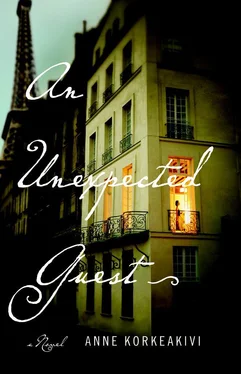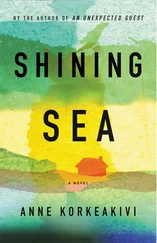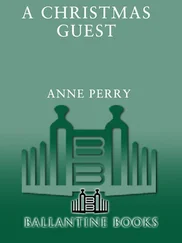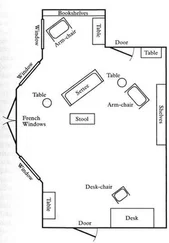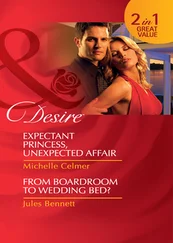She stopped by the Grove of Orpheus. It seemed barren, still bereft of the lavish greenery of summer, the box trees cut low and round, the lilacs not yet in bloom. Only the bare stems and a few random sprouts of medicinal plants poked through the grove’s rockery. The muscular torso of Orpheus, stretching his lyre up towards the sky, looked all the more doomed for the lack of leaves and flowers as buoys. Written by his feet: Toi qui entre ici abandonne toute espérance— “All hope abandon ye who enter here”—lifted from the entrance to Hell in Dante. Doubt had destroyed Orpheus and condemned his wife to return forever to the underworld, but also greed. He had wanted too much, too badly. He’d tried to insist that the pleasures of love last forever.
She continued south along the garden’s central alley until she reached the path that led east to the section known as the Woods, which would take her on a loop back towards the museum entrance. Here, chestnut trees replaced the linden, perhaps the same ones whose fragrance had filled the Rue de Varenne as she’d walked along it to buy flowers and had wafted into the Residence’s study when she’d opened its windows this morning. She breathed in deeply.
There, between the trees, was the huge bent torso of Andrieu d’Andres, the one of the six burghers of Calais doomed to be known through history, thanks to Rodin, not for his act of extreme bravery but for the distress he felt over his act of self-sacrifice. She moved towards the statue, as she always did when she reached this part of the garden. The college professor from whom she’d first heard the story of the Calais burghers had been a square-headed Italian who had somehow ended up teaching French history. His face had always been faintly red, and he’d worn a moustache that bobbed when he spoke. She could see it now, responding to seminar discussion with a little bounce, as she and the other Harvard and Radcliffe undergrads tried to make sense of self-sacrifice in another era. During the Hundred Years’ War, in the mid-fourteenth century, King Edward III of England had laid siege to the northern French town of Calais. After eleven months, with the town’s food and water supplies depleted, six of the town’s most illustrious citizens agreed to offer themselves up as ransom to the king in return for his freeing their city and its people. The six burghers presented themselves on the appointed morning, divested of their rich robes, before the city gates, and the king proceeded to call his executioner. He was swayed at only the last minute by his pregnant wife, Philippa; she decided that the burghers’ slaughter would be a bad portent for her unborn baby.
Most of the other students in her seminar had found the men’s surprise release a letdown. Over the same semester, the class had been through the Norman Conquest and the slaughter of the Cathars. They’d come to expect tales of immolation and beheading. One girl went so far as to suggest that the Burghers’ escape lessened the bravery of their action.
Clare had laughed along with the seminar group’s increasingly boorish discussion, although secretly she’d found the burghers’ unexpected survival all the more proof of their patriotism; to her, the arbitrariness of their deliverance served to underscore its unlikelihood. When she’d begun translating museum and art exhibition catalogs and seen Rodin’s famous depiction of the burghers’ arrival at the city gates, she’d realized just how foolish she and her classmates must have looked to their professor, the boys in their hardy rugby shirts and the girls in their neat Fair Isle sweaters, sitting around an oak-paneled study hall discussing sacrifice. Since moving into the minister’s residence, she’d returned to their tortured hypercorporeal figures in the gardens of the Rodin Museum over and over. A full rendition of the sculpture — as Rodin, under commission for the city of Calais, had designed it to be displayed, all six burghers clustered together, of equal height, of equal stature — stood farther on in the Rodin Museum gardens, closer to the entrance. Individual casts of each burgher were strewn amidst the lindens and chestnuts and peonies. The most exalted, Eustache de Saint-Pierre, the burgher who had agreed first to surrender his life for the good of his city, stood square in the middle, looking grave but determined, a beacon for French pride. But the figure that magnetized her was that of poor Andrieu. Rodin had buried Andrieu’s bronze face in enormous tinny hands, bent his dark gleaming neck with mortal sorrow; he had chosen Andrieu to represent a different side of self-sacrifice. One she thought might be more realistic. Sorrow. The quiet half-hidden bench beside him was her favorite place in the garden to sit and think.
The young grass felt soft under her loafers. The afternoon sun danced on Andrieu’s dipped head and flirted with his agonized metallic fingers. She reached out to touch them.
He was there. On the bench, sheltered by a giant holly, its leaves dark and razor-sharp.
Her hand fell on the statue’s hand. Her wedding ring made a ping against the bronze, into the stillness. This time he was no mirage, no fleeting vision. He was as real as the iron bench beneath him.
“You…,” she said, just as she’d said so many years ago. Her voice trailed off.
The fading sun, as hot-cold on her neck as the way he was looking at her.
“How about ye?” he said.
The ticking of her watch, the ticking of the day as it passed, of the years that had passed.
“Niall.”
He slid a few inches to his right, leaving a space for her on the bench.
She sat down.
He did not move to take her hand. She did not offer it. But she felt as though he’d slipped his whole body around her, not just an arm over her shoulder or a cheek next to her cheek. It was summer again, and she felt the heat of him.
“Poor bastard,” he said. “Known forever as the one who choked at dying for his people.”
How strangely familiar his voice was, still low and almost rumbling, still that distinct rhythm that rolled along, then lifted at the end of a sentence. “There was a lot of controversy over that figure,” she finally said. “A real uproar. The city of Calais thought like you. They thought it wasn’t respectful.”
“You’re not of the same mind.”
She shook her head. “Andrieu wasn’t a coward: he offered his life up willingly, no one forced him. He simply was human. He wept over the impending loss of it.”
Niall leaned back into the bench and breathed the air. He surveyed her profile. “You’ve become a talker, Clare.”
“No,” she said. She viewed him from the sides of her eyes. “Eloquent.”
Niall laughed. “Touché.”
“You’ve become French-speaking.”
He laughed again. “You always were a clever one. Quiet but clever. That’s what first took me about you. That and…”
They both looked at her hands. They were so thin, so fine, and the rings Edward had given her sparkled. She clasped her fingers together on her lap, covering the diamonds. “Where have you been, Niall? You’re supposed to be dead.”
Niall closed his eyes. She could see the exhaustion in the skin around them. He looked the same but different, no longer old for his age but timeless, his body still lean, but the black of his now-cropped short hair flecked with gray. He was wearing a dark blue cotton sweater, boots, and faded blue jeans. Clare felt an unsolicited stirring in her own body. When he reopened his lids, his eyes were just the same as they’d always been: penetrating.
“You could say I am dead. You as good as killed me. But, Mother of God have mercy on me, I’m not here to ask you why you did what you did. I’m not here to give out to you. I just want my life back.”
Читать дальше
